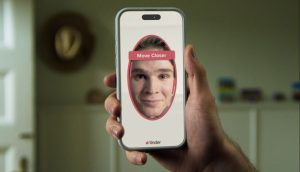
Formula E’s latest all-electric model generated in WPP Open using Google’s Gemini 1.5 Pro.
WPP is aiming to make its WPP Open marketing operating system more efficient with a recent partnership with Google.
The collaboration would allow WPP to incorporate Google’s Gemini 1.5 Pro technology into its AI-powered system, which is used by over 35,000 of the company’s employees and has been adopted by different brands, including Coca-Cola, L’Oréal and Nestlé. With the tech, WPP clients will be able to create brand- and product-specific content using AI, obtain a better understanding of their target audience and predict and explain accurately the effectiveness of content.
“We chose to partner with Google now because of their deep expertise in data analytics, generative AI technology, and cyber security. By combining these strengths with our end-to-end marketing capabilities and understanding of our clients’ brands, we aim to drive a significant improvement in marketing efficiency and effectiveness,” WPP chief technology officer Stephan Pretorius tells MiC.
WPP will implement Gemini to Creative Studio, an app that is part of WPP Open and helps with tasks such as writing headlines and turning a sketch into an image. The app will now have the capacity to receive more guidelines and information about brands, such as color palette, fonts, voice and even data about past marketing campaigns. “This enables the development of much richer and dynamic user interfaces, and by understanding the brand better, more creative and on-brand content can be developed,” says WPP. AI Performance Brain, a WPP Open service that predicts the performance of marketing content, will also be updated with the Google tech. This will improve the way the system predicts the success of marketing content, even before the campaign activation.
Additionally, WPP’s partnership with Google will enable its system to automatically create customisable video narration scripts. These will be transferred to WPP partner ElevenLabs, which generates a realistic voice for narrations, making video creation faster and more personalized. The tech will also enhance product images, as the system will recognize a brand’s style guidelines (logos, fonts and colors) and combine the shape, design and packaging of an actual product to create a brand-compatible 3D image.
“With this collaboration, WPP is heading towards a future where marketing is continuously optimised and automated. By integrating Google’s advanced gen AI tools into WPP Open, we’re not just enhancing our current capabilities, but also opening up new avenues for innovation and creativity in marketing,” says Pretorius. “The integration allows us to create more dynamic, on-brand content, and provides us with the ability to continuously adapt and optimise our marketing strategies based on real-time insights. We see this as an exciting opportunity to lead the industry into this new era, creating a transformative impact for our clients and reshaping the marketing landscape as a whole.”
The move is part of WPP’s ongoing £250 million annual investment in AI, data and technology, which was announced in January of this year.






















